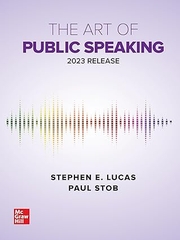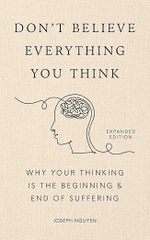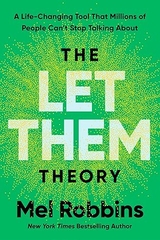-
-
-
Tổng tiền thanh toán:
-
-
Thông tin
-
Tìm sách theo yêu cầu
Most of us have no idea what’s really going on inside our heads. Yet brain scientists have uncovered details every business leader, parent, and teacher should know—like the need for physical activity to get your brain working its best.
How do we learn? What exactly do sleep and stress do to our brains? Why is multi-tasking a myth? Why is it so easy to forget—and so important to repeat new knowledge? Is it true that men and women have different brains?
In Brain Rules, Dr. John Medina, a molecular biologist, shares his lifelong interest in how the brain sciences might influence the way we teach our children and the way we work. In each chapter, he describes a brain rule—what scientists know for sure about how our brains work—and then offers transformative ideas for our daily lives.
Medina’s fascinating stories and infectious sense of humor breathe life into brain science. You’ll learn why Michael Jordan was no good at baseball. You’ll peer over a surgeon’s shoulder as he proves that most of us have a Jennifer Aniston neuron. You’ll meet a boy who has an amazing memory for music but can’t tie his own shoes.
You will discover how:
Every brain is wired differently
Exercise improves cognition
We are designed to never stop learning and exploring
Memories are volatile
Sleep is powerfully linked with the ability to learn
Vision trumps all of the other senses
Stress changes the way we learn
In the end, you’ll understand how your brain really works—and how to get the most out of it.
- Link: http://www.amazon.com/Brain-Rules-Principles-Surviving-Thriving/dp/0979777704
How do we learn? What exactly do sleep and stress do to our brains? Why is multi-tasking a myth? Why is it so easy to forget—and so important to repeat new knowledge? Is it true that men and women have different brains?
In Brain Rules, Dr. John Medina, a molecular biologist, shares his lifelong interest in how the brain sciences might influence the way we teach our children and the way we work. In each chapter, he describes a brain rule—what scientists know for sure about how our brains work—and then offers transformative ideas for our daily lives.
Medina’s fascinating stories and infectious sense of humor breathe life into brain science. You’ll learn why Michael Jordan was no good at baseball. You’ll peer over a surgeon’s shoulder as he proves that most of us have a Jennifer Aniston neuron. You’ll meet a boy who has an amazing memory for music but can’t tie his own shoes.
You will discover how:
Every brain is wired differently
Exercise improves cognition
We are designed to never stop learning and exploring
Memories are volatile
Sleep is powerfully linked with the ability to learn
Vision trumps all of the other senses
Stress changes the way we learn
In the end, you’ll understand how your brain really works—and how to get the most out of it.
Product Details
- Hardcover: 301 pages
- Publisher: Pear Press; Har/DVD edition (February 26, 2008)
- Language: English
- ISBN-10: 0979777704
- ISBN-13: 978-0979777707
- Product Dimensions: 9.5 x 6.3 x 1.2 inches
- Shipping Weight: 1.4 pounds (View shipping rates and policies)
- Average Customer Review: 4.5 out of 5 stars See all reviews (478 customer reviews)
- Amazon Best Sellers Rank: #117,199 in Books (See Top 100 in Books)
Editorial Reviews
From Publishers Weekly
Multitasking is the great buzz word in business today, but as developmental molecular biologist Medina tells readers in a chapter on attention, the brain can really only focus on one thing at a time. This alone is the best argument for not talking on your cellphone while driving. Medina (The Genetic Inferno) presents readers with a basket containing an even dozen good principles on how the brain works and how we can use them to our benefit at home and work. The author says our visual sense trumps all other senses, so pump up those PowerPoint presentations with graphics. The author says that we don't sleep to give our brain a rest—studies show our neurons firing furiously away while the rest of the body is catching a few z's. While our brain indeed loses cells as we age, it compensates so that we continue to be able to learn well into our golden years. Many of these findings and minutiae will be familiar to science buffs, but the author employs an appealing style, with suggestions on how to apply his principles, which should engage all readers. DVD not seen by PW.(Mar.)
Copyright © Reed Business Information, a division of Reed Elsevier Inc. All rights reserved.
Copyright © Reed Business Information, a division of Reed Elsevier Inc. All rights reserved.
Review
"Oliver Sacks meets Getting Things Done." --- Cory Doctorow, co-editor of Boing Boing
Most Helpful Customer Reviews
473 of 490 people found the following review helpfulBy J. Brown on August 9, 2008
Format: Hardcover Verified Purchase
2 Comments Was this review helpful to you? YesNoI believe personal productivity and performance as a leader are directly correlated. Just like we have to lead a team, we have to lead ourselves to a higher level of a productivity and effectiveness. In all of the leadership classes I teach, emphasis is placed on knowing yourself. When you know yourself it provides you the ability to adapt to weaknesses and leverage your strengths (increase your personal productivity and effectiveness).
Knowing how your brain functions is part of knowing yourself.
This book is so insightful and valuable that I sent copies to my clients. The value of the book hinges on the understanding of the brain and how it works which allows me to leverage that knowledge for increased personal productivity and in my interactions and relationships with others.
Myth Busters for the brain!
The book is a fairly easy read because the author uses stories to illustrate the functionality of the brain. This book is not a "leadership-lite" book filled with cute and truthful antidotes, but a book with hard science communicated in an interesting way. Dr. John J. Medina is a developmental molecular biologist. He also shares what scientists don't know about how the brain works!
This book gave me many, many take-aways and here are just six ...
I. Some parts of the brain are just like a baby's and can grow new connections and strengthen existing connections. We have the ability to learn new things our entire life. Medina states this was "not the prevailing notion until 5 or 6 years ago." So much for the "you can't teach and old dog new tricks excuse." The old dog line is exposed for what it really is...an excuse.
II. Humans can only pay attention for about ten minutes and then need some kind of reset.
III. The brain can only focus on one thing at a time. This is further rationale on the futility of multi-tasking.
IV. Exercise increases brain power and aerobic exercise twice a week reduces the risk of general dementia by 50% and Alzheimer's by 60%.
V. There is a biological need for an afternoon nap.
VI. The brain is very active during sleep and loss of sleep hurts cognitive and physical ability.
Buy and read Brain Rules. It will benefit you.
One of the reasons I read leadership books is to learn new things but also to get old truths hammered into my thick skull so they result in action. Action! So you may know or have heard of some of the truths in "Brain Rules" but I guarantee the author brings them to you in a unique an interesting way with solid depth that will allow you to easier implement those truths into how you handle yourself and others on a daily basis.
Dr. James T. Brown PMP PE CSP
Author, The Handbook of Program Management
Knowing how your brain functions is part of knowing yourself.
This book is so insightful and valuable that I sent copies to my clients. The value of the book hinges on the understanding of the brain and how it works which allows me to leverage that knowledge for increased personal productivity and in my interactions and relationships with others.
Myth Busters for the brain!
The book is a fairly easy read because the author uses stories to illustrate the functionality of the brain. This book is not a "leadership-lite" book filled with cute and truthful antidotes, but a book with hard science communicated in an interesting way. Dr. John J. Medina is a developmental molecular biologist. He also shares what scientists don't know about how the brain works!
This book gave me many, many take-aways and here are just six ...
I. Some parts of the brain are just like a baby's and can grow new connections and strengthen existing connections. We have the ability to learn new things our entire life. Medina states this was "not the prevailing notion until 5 or 6 years ago." So much for the "you can't teach and old dog new tricks excuse." The old dog line is exposed for what it really is...an excuse.
II. Humans can only pay attention for about ten minutes and then need some kind of reset.
III. The brain can only focus on one thing at a time. This is further rationale on the futility of multi-tasking.
IV. Exercise increases brain power and aerobic exercise twice a week reduces the risk of general dementia by 50% and Alzheimer's by 60%.
V. There is a biological need for an afternoon nap.
VI. The brain is very active during sleep and loss of sleep hurts cognitive and physical ability.
Buy and read Brain Rules. It will benefit you.
One of the reasons I read leadership books is to learn new things but also to get old truths hammered into my thick skull so they result in action. Action! So you may know or have heard of some of the truths in "Brain Rules" but I guarantee the author brings them to you in a unique an interesting way with solid depth that will allow you to easier implement those truths into how you handle yourself and others on a daily basis.
Dr. James T. Brown PMP PE CSP
Author, The Handbook of Program Management
205 of 212 people found the following review helpfulBy Thomas Duff HALL OF FAMETOP 500 REVIEWERVINE VOICE on May 28, 2008
Format: Hardcover
When an author and industry expert you hold in high regard says a book is the best one s/he's read in 2008, it's probably a good idea to take notice. So when Garr Reynolds of Presentation Zen fame recommended Brain Rules: 12 Principles for Surviving and Thriving at Work, Home, and School by John Medina, I decided that should be something I get sooner rather than later. After reading, I can see why he recommends the book so highly. Medina's 12 "brain rules" are based on solid science, but they're presented in such a way that you can actually apply your new-found knowledge.
Contents:
Exercise - Rule #1: Exercise boosts brain power.
Survival - Rule #2: The human brain evolved, too.
Wiring - Rule #3: Every brain is wired differently.
Attention - Rule #4: We don't pay attention to boring things.
Short-Term Memory - Rule #5: Repeat to remember.
Long-Term Memory - Rule #6: Remember to repeat.
Sleep - Rule #7: Sleep well, think well.
Stress - Rule #8: Stressed brains don't learn the same way.
Sensory Integration - Rule #9: Stimulate more of the senses.
Vision - Rule #10: Vision trumps all other senses.
Gender - Rule #11: Male and female brains are different.
Exploration - Rule #12: We are powerful and natural explorers.
Acknowledgements
Index
When Reynolds reviewed the book on his site, he focused on how these rules pertain to the art of making presentations. Attention, as explained by Medina, means that the brain does not multitask (much to your bosses dismay), we notice patterns and abstract meanings better than recording detail, and you have basically 10 minutes before the audience checks out without a new stimulus. Vision, the sensory "trump card", is the dominant sense, our brain controls what we see (and it's not totally correct), the processes to "see" something are very complex, and most importantly, we remember and learn best through pictures and not written/spoken words. That one insight alone should be enough to make you totally rethink the way we attempt to present to people...
Now, even if you're not approaching the book from a presentation angle, the book is still outstanding. Something like memory, an act we take for granted, is a deep mystery that we still don't understand. Medina shows by studies and real-life examples how things *might* work, knowing full well we haven't even begun to understand but a fraction of what goes on there. Sleep, something that boosts brain power, is *not* a time of relaxation for the brain. In fact, it often kicks into overdrive. Why? There are still no definitive answers. But he does go on to prove how *lack* of sleep can utterly render you incapable of rational thought and physical action. When you've worked through all 12 of the brain rules, you'll have a more complete understanding of how you can affect the quality of your brain functioning, all the while being entertained and amazed at what lies between your ears.
Every time I got to the end of a chapter, I started to put the book down. But then I'd think "just one more and then I'll turn out the light." Needless to say, I was at the end before I knew it. Like Garr Reynolds, this is one of the best books I've read this year, and one that I'd recommend to others for a number of reasons and purposes.
Contents:
Exercise - Rule #1: Exercise boosts brain power.
Survival - Rule #2: The human brain evolved, too.
Wiring - Rule #3: Every brain is wired differently.
Attention - Rule #4: We don't pay attention to boring things.
Short-Term Memory - Rule #5: Repeat to remember.
Long-Term Memory - Rule #6: Remember to repeat.
Sleep - Rule #7: Sleep well, think well.
Stress - Rule #8: Stressed brains don't learn the same way.
Sensory Integration - Rule #9: Stimulate more of the senses.
Vision - Rule #10: Vision trumps all other senses.
Gender - Rule #11: Male and female brains are different.
Exploration - Rule #12: We are powerful and natural explorers.
Acknowledgements
Index
When Reynolds reviewed the book on his site, he focused on how these rules pertain to the art of making presentations. Attention, as explained by Medina, means that the brain does not multitask (much to your bosses dismay), we notice patterns and abstract meanings better than recording detail, and you have basically 10 minutes before the audience checks out without a new stimulus. Vision, the sensory "trump card", is the dominant sense, our brain controls what we see (and it's not totally correct), the processes to "see" something are very complex, and most importantly, we remember and learn best through pictures and not written/spoken words. That one insight alone should be enough to make you totally rethink the way we attempt to present to people...
Now, even if you're not approaching the book from a presentation angle, the book is still outstanding. Something like memory, an act we take for granted, is a deep mystery that we still don't understand. Medina shows by studies and real-life examples how things *might* work, knowing full well we haven't even begun to understand but a fraction of what goes on there. Sleep, something that boosts brain power, is *not* a time of relaxation for the brain. In fact, it often kicks into overdrive. Why? There are still no definitive answers. But he does go on to prove how *lack* of sleep can utterly render you incapable of rational thought and physical action. When you've worked through all 12 of the brain rules, you'll have a more complete understanding of how you can affect the quality of your brain functioning, all the while being entertained and amazed at what lies between your ears.
Every time I got to the end of a chapter, I started to put the book down. But then I'd think "just one more and then I'll turn out the light." Needless to say, I was at the end before I knew it. Like Garr Reynolds, this is one of the best books I've read this year, and one that I'd recommend to others for a number of reasons and purposes.
XEM CHI TIẾT TẠI AMAZON.COM
- Thông tin chi tiết
- Mục lục
- Đánh giá & bình luận của người mua
- Những cuốn sách cùng chủ đề hoặc có liên quan
Tại web chỉ có một phần nhỏ các đầu sách đang có nên nếu cần tìm sách gì các bạn có thể liên hệ trực tiếp với Thư viện qua Mail, Zalo, Fanpage nhé
Đăng ký nhận tin qua email
Hãy đăng ký ngay hôm nay để nhận được những tin tức cập nhật mới nhất về sản phẩm và các chương trình giảm giá, khuyến mại của chúng tôi.












